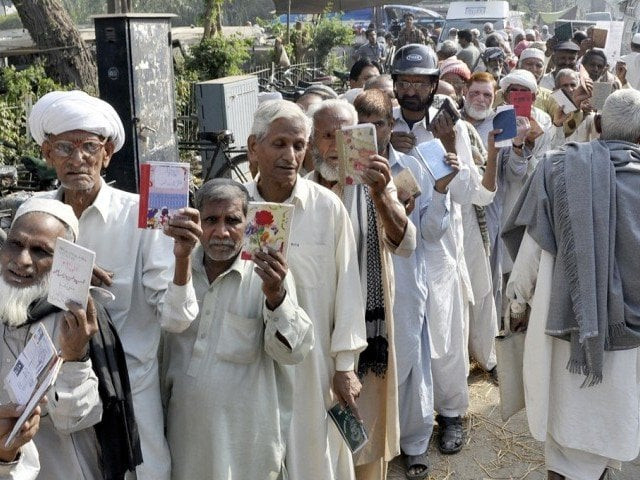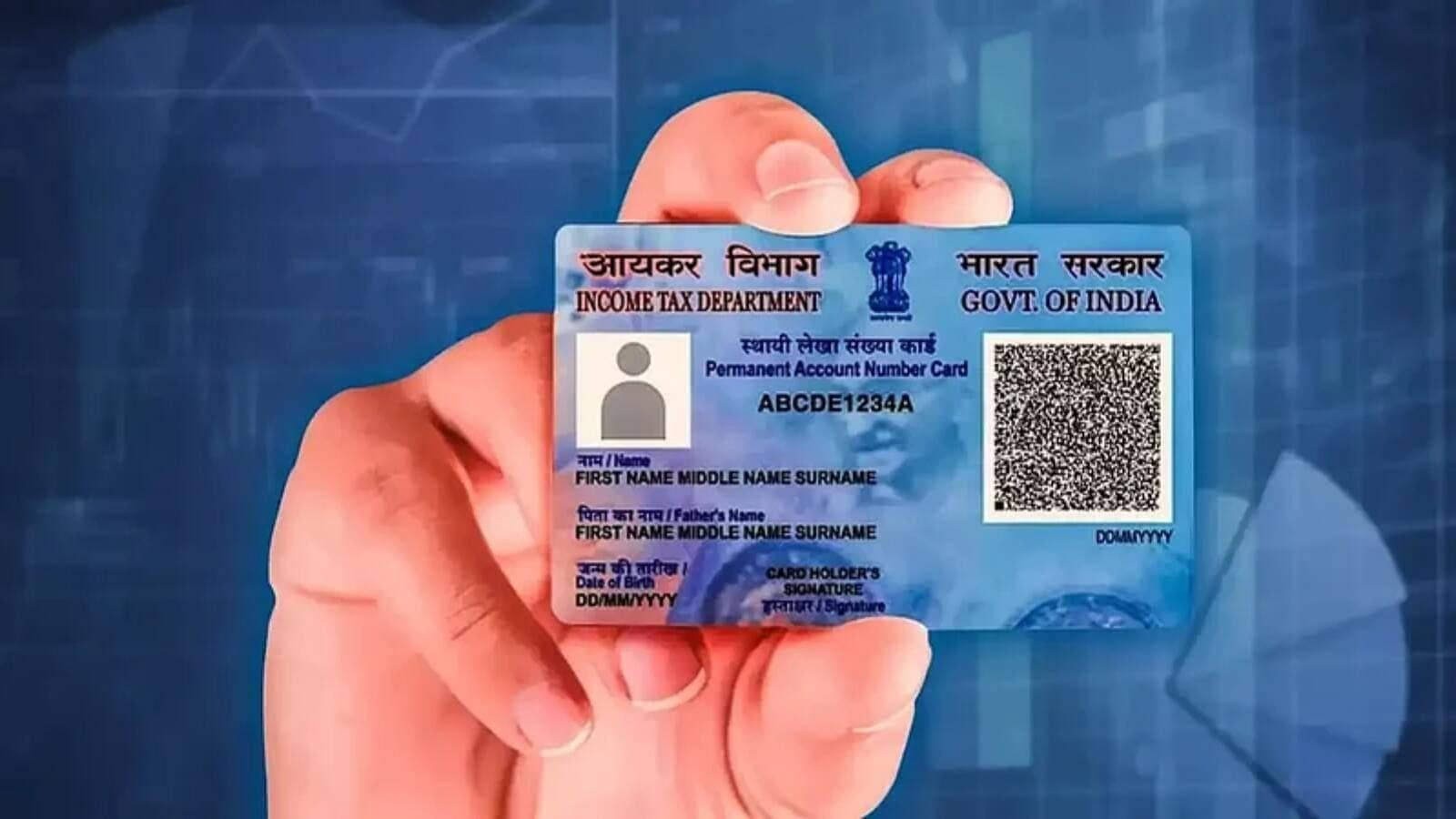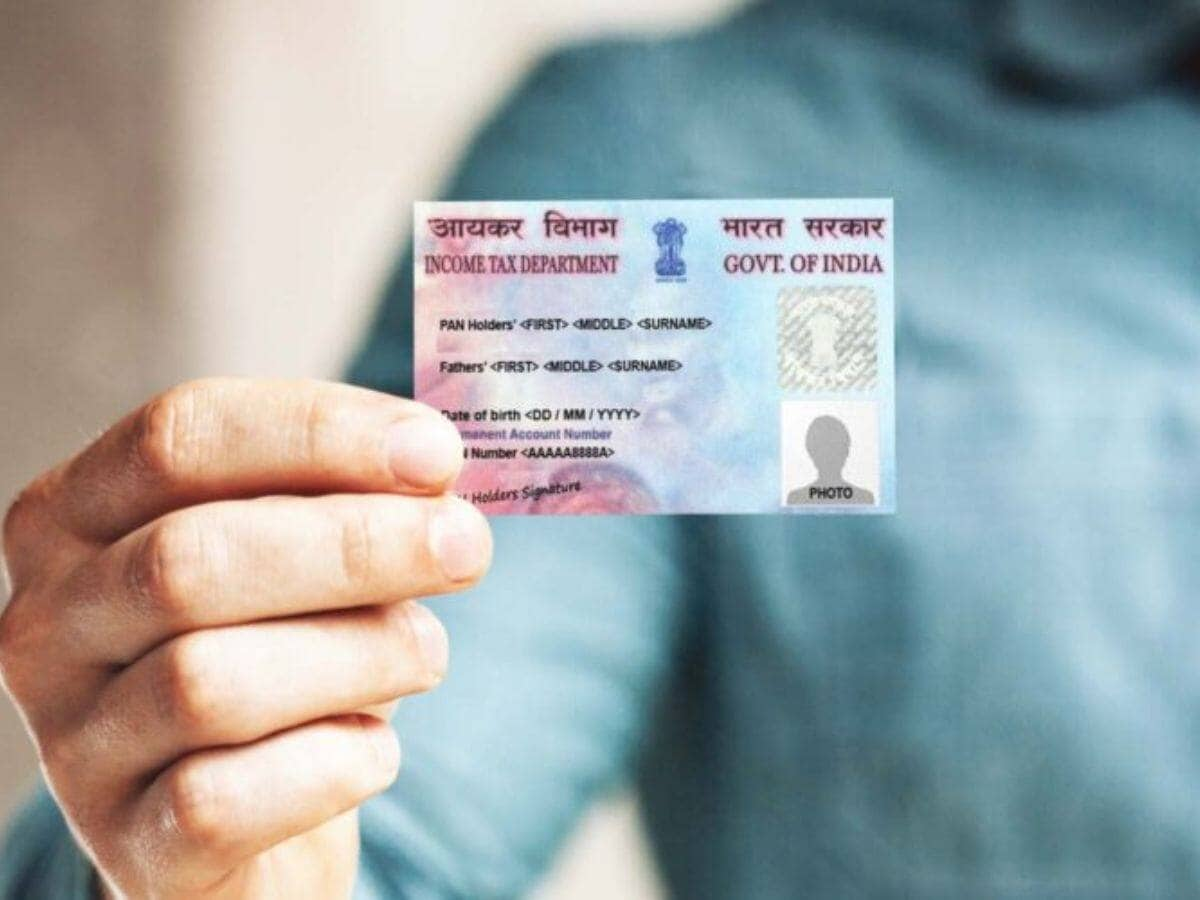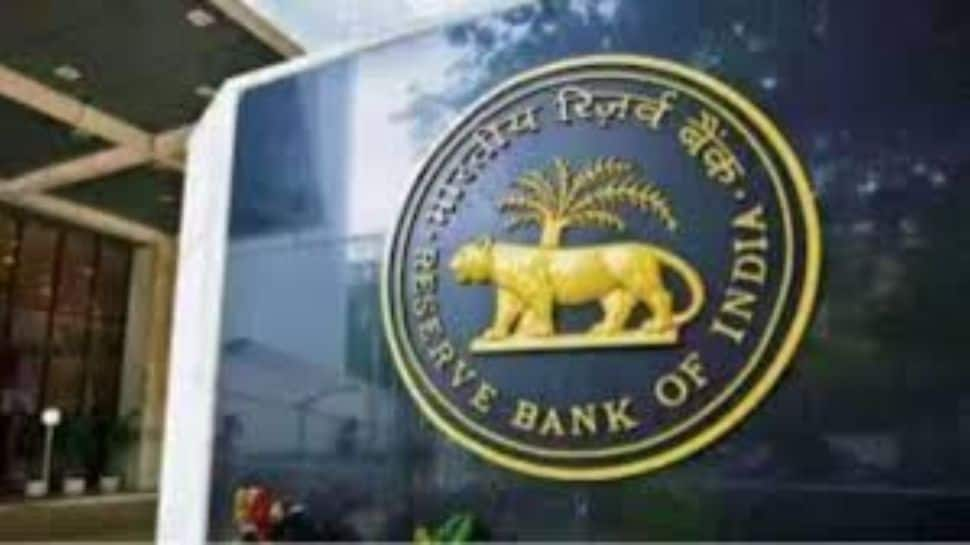Business
New contributory pension scheme unveiled with 10:12 employee-govt share | The Express Tribune

ISLAMABAD:
The federal government has implemented a new Contributory Pension Fund Scheme as the employees will now contribute 10 per cent of their salaries toward their pensions, making them eligible to receive a 12 per cent contribution from the national exchequer.
The Federal Government Defined Contribution (FGDC) Pension Fund Scheme Rules 2024 have been issued by the Finance Ministry’s Regulation Department under the Public Finance Management Act, 2019. The new scheme will be regulated in accordance with the Voluntary Pension System Rules, 2005, and the Non-Banking Finance Companies and Notified Entities Regulations, 2008.
The rules replace the earlier directive issued in August 2024, which had set the government’s contribution at 20 per cent.
On August 20, 2024, the Finance Ministry had initially announced the introduction of a contributory pension scheme for newly recruited civil servants and armed forces personnel. Under the revised system, civil employees recruited on or after July 1, 2024, including those in civil defense, will be covered, while implementation for armed forces personnel is expected from July 1, 2025, pending formal approval.
To support the new pension structure, the government has allocated Rs10 billion for the 2024–25 budget and Rs4.3 billion for 2025–26.
Sources revealed that the scheme was introduced on the recommendation of the International Monetary Fund (IMF) and the World Bank to address the rising pension liabilities, which the government has termed a serious fiscal risk. The reform will not affect current employees but aims to slow the growth of future pension expenditures.
According to government estimates, federal pension spending is projected to reach Rs1.05 trillion in 2024–25, up 29 per cent from Rs821 billion in 2023–24. Pension liabilities for the armed forces are expected to rise 32 per cent, reaching Rs742 billion in 2025–26 compared to Rs563 billion in 2023–24.
For civil servants, pension allocations have increased by 6.6 per cent to Rs243 billion in the current fiscal year from Rs228 billion last year, reflecting modest savings due to the reforms.
Under the new rules, only authorized pension fund managers will manage the fund. The government, as an employer, will deposit 12 per cent of an employee’s pensionable salary through the Accountant General’s Office, which will also monitor record-keeping and fund transfers.
Employees’ 10 per cent contributions will be automatically deducted from their salaries, and both employee and employer contributions will be transferred to the Employer Pension Fund before salary disbursement.
Employees will not be allowed to withdraw pension funds before retirement. Upon retirement, they may withdraw up to 25 per cent of their accumulated savings, while the remaining amount will stay invested under the Voluntary Pension System Rules, 2002, until they complete 20 years of investment or reach the age of 80, whichever comes first.
Employee payslips will now include detailed pension contribution information, listing both the employee’s and employer’s shares along with the total accumulated balance. The Finance Ministry will allocate an annual budget for the government’s share and sign contracts only with pension fund managers that support electronic fund transfers. The agreements will also require insurance coverage in cases of death or disability, to be provided through the designated fund managers.
To supervise the scheme’s implementation, the Finance Ministry will establish a Non-Banking Finance Company (NBFC), which will initially operate in an interim capacity until formally constituted. Pension benefits in cases of retirement, resignation, dismissal, or early retirement will be determined according to government regulations.
The Contributory Pension Fund Scheme marks a major shift from the traditional defined-benefit model to a defined-contribution system, aiming to enhance financial sustainability and ensure long-term retirement security for future public sector employees.
Business
Income Tax Draft Rules 2026: Key Changes On How And When Pan Card Will Be Required?

The Indian government has proposed the Income-tax Rules 2026, making PAN cards mandatory for select high-value transactions. Replacing the 1962 rules, these changes aim to simplify and bring transparency to the tax system. After considering suggestions, the rules are expected to be finalized and implemented by April 1, 2026.
Here’s a detailed look about how PAN cards are used in various financial transactions.

Immovable Property Transactions: PAN will be required for property transactions exceeding Rs 20 lakh, which is up from Rs 10 lakh. It will include purchase, sale, gift, or joint development agreements.

Motor Vehicles Purchase: PAN is now required for motor vehicle purchases exceeding Rs 5 lakh, including two-wheelers that have been exempted so far. Additionally, those who buy premium bikes or expensive cars will need to quote PAN. Meanwhile, tractors are still excluded.

Cash Deposits And Withdrawals: PAN will be required for aggregate cash deposits or withdrawals exceeding Rs 10 lakh in a financial year. As per the existing rules, it is required for cash deposits of more than Rs 50,000 in a day at a bank or post office.

Hotel And Restaurant Payments: It will be required for cash payments exceeding Rs 1 lakh, which is up from Rs 50,000.

Insurances: PAN will be required to initiate account-based relationship with insurance companies, irrespective of the premium account.
Business
Himadri Speciality Starts Commercial Operations Of 70,000 TPA Carbon Black Line; Details Here

Last Updated:
With the brownfield expansion, the company’s total carbon black capacity has risen to 2,50,000 TPA.


Shares of Himadri Speciality Chemical were trading 0.70% higher at Rs 491.5 apiece on the NSE on Wednesday.
Himadri Speciality Chemical Ltd has commenced commercial operations of its newly commissioned 70,000 tonnes per annum (TPA) speciality carbon black line at its Mahistikry manufacturing facility in Hooghly, West Bengal, the company said on Tuesday (February 24).
With the brownfield expansion, the company’s total carbon black capacity has risen to 2,50,000 TPA. Of this, 1,30,000 TPA comprises speciality carbon black capacity at the Mahistikry site, making it the world’s largest single-location speciality carbon black manufacturing facility.
The expansion bolsters Himadri’s speciality portfolio and strengthens its ability to cater to high-value, performance-driven applications across plastics, inks, paints, coatings and other niche segments.
According to the company, the project integrates advanced process technologies, modern quality control systems, energy-efficient operations and scalable infrastructure to ensure consistent production of premium grades for global customers.
Anurag Choudhary, CMD and CEO, Himadri Speciality Chemical Ltd, said, “The commencement of commercial operations of our 70,000 MTPA (metric tonnes per annum) speciality carbon black line at Mahistikry marks the beginning of the next phase of growth in our advanced carbon materials journey. With this expansion, Mahistikry becomes the world’s largest single-location Speciality Carbon Black facility, with a capacity of 1,30,000 MTPA. This positions us strongly to capture rising global demand in premium, application-specific segments such as plastics, inks, paints, coatings, and other specialised industries.”
He added, “The newly-commissioned capacity is expected to contribute meaningfully to revenue growth and strengthen the Company’s margin profile over the medium term. As global demand continues to shift toward high-performance, customised carbon solutions, Himadri’s enhanced scale provides competitive advantages through operational efficiencies, supply reliability, faster market responsiveness, and improved product innovation capabilities.”
Shares of Himadri Speciality Chemical were trading 0.70% higher at Rs 491.5 apiece on the NSE on Wednesday.
Check JEE Mains Result 2026 Link Here
February 25, 2026, 11:25 IST
Read More
Business
Angel One 1:10 Stock Split 2026: Broking Stock Fixes Record Date

Last Updated:
Angel One sets Feb 26 as record date for 1:10 stock split. Shareholders will get 10 shares for each held.


Angel One Stock Split 2026
Angel One Stock Split Record Date: Domestic brokerage firm Angel One has fixed February 26 as the record date for its previously approved 1:10 stock split, moving ahead with a proposal cleared by its Board last month.
The company had earlier informed stock exchanges on Jan. 15 that its Board of Directors approved the sub-division of equity shares in a 1:10 ratio.
Board Approval For Share Sub-Division
Under the approved proposal, each fully paid-up equity share with a face value of Rs 10 will be split into 10 fully paid-up equity shares with a face value of Re 1 each.
In its Jan. 15 stock exchange filing, the company stated that the Board had approved the sub-division of one existing equity share of face value Rs 10, fully paid-up, into 10 equity shares of face value Re 1 each, fully paid-up. The move is aimed at increasing the number of outstanding shares and improving liquidity in the counter.
Stock splits typically make shares more affordable for retail investors by reducing the market price per share, although the overall market capitalization of the company remains unchanged.
Feb 26 Fixed As Record Date
In a subsequent filing dated Feb. 18, Angel One confirmed that its executive committee has fixed Thursday, Feb. 26, as the record date to determine eligible shareholders for the stock split.
The record date serves as the cut-off to identify shareholders who will be entitled to receive the additional shares. Investors holding the stock on or before Feb. 26 will qualify for the sub-division benefit.
What The Stock Split Means For Investors
Shareholders will receive 10 equity shares for every one share currently held. While the face value per share will reduce from Rs 10 to Re 1, the total value of an investor’s holdings will remain unchanged, as the split does not alter ownership percentage or overall wealth.
Angel One Q3 FY26: Profit Dips Amid Higher Costs
For the quarter ended Dec. 31, 2025, Angel One reported a 4.5% year-on-year decline in consolidated profit after tax to Rs 269 crore, compared with Rs 281.5 crore in the same quarter last year.
However, total income rose 5.8% to Rs 1,338 crore from Rs 1,264 crore in Q3 FY25. Total expenses increased to Rs 964.2 crore from Rs 876.5 crore, primarily due to higher employee benefit costs, elevated ESOP expenses, and increased operating expenditure.
Check JEE Mains Result 2026 Link Here
February 25, 2026, 07:20 IST
Read More
-

 Entertainment1 week ago
Entertainment1 week agoQueen Camilla reveals her sister’s connection to Princess Diana
-

 Tech1 week ago
Tech1 week agoRakuten Mobile proposal selected for Jaxa space strategy | Computer Weekly
-

 Politics1 week ago
Politics1 week agoRamadan moon sighted in Saudi Arabia, other Gulf countries
-

 Entertainment1 week ago
Entertainment1 week agoRobert Duvall, known for his roles in "The Godfather" and "Apocalypse Now," dies at 95
-

 Politics1 week ago
Politics1 week agoTarique Rahman Takes Oath as Bangladesh’s Prime Minister Following Decisive BNP Triumph
-

 Business1 week ago
Business1 week agoTax Saving FD: This Simple Investment Can Help You Earn And Save More
-

 Sports1 week ago
Sports1 week agoUsman Tariq backs Babar and Shaheen ahead of do-or-die Namibia clash
-

 Tech1 week ago
Tech1 week agoBusinesses may be caught by government proposals to restrict VPN use | Computer Weekly











